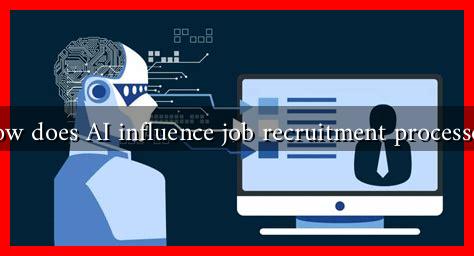-
Table of Contents
How Does AI Influence Job Recruitment Processes?
The recruitment landscape has undergone a significant transformation in recent years, largely due to the advent of artificial intelligence (AI). As organizations strive to streamline their hiring processes and enhance candidate experiences, AI technologies have emerged as powerful tools that can reshape how companies attract, evaluate, and select talent. This article explores the various ways AI influences job recruitment processes, highlighting its benefits, challenges, and real-world applications.
The Role of AI in Recruitment
AI technologies are increasingly being integrated into recruitment processes, offering solutions that can improve efficiency and effectiveness. Here are some key areas where AI plays a pivotal role:
- Resume Screening: AI algorithms can quickly analyze resumes, identifying the most qualified candidates based on specific criteria. This reduces the time spent on manual screening and helps recruiters focus on high-potential candidates.
- Chatbots for Initial Engagement: AI-powered chatbots can engage with candidates in real-time, answering questions and providing information about job openings. This enhances the candidate experience and keeps applicants informed throughout the process.
- Predictive Analytics: AI can analyze historical hiring data to predict which candidates are likely to succeed in specific roles. This data-driven approach helps organizations make informed hiring decisions.
- Bias Reduction: AI tools can be designed to minimize unconscious bias in recruitment by focusing on skills and qualifications rather than demographic factors. This can lead to a more diverse and inclusive workforce.
Benefits of AI in Recruitment
The integration of AI into recruitment processes offers numerous advantages for organizations:
- Increased Efficiency: AI can process large volumes of applications in a fraction of the time it would take a human recruiter, significantly speeding up the hiring process.
- Cost Savings: By automating repetitive tasks, companies can reduce the costs associated with recruitment, allowing HR teams to allocate resources more effectively.
- Enhanced Candidate Experience: AI tools can provide timely feedback and communication, improving the overall experience for candidates and increasing the likelihood of acceptance if offered a position.
- Data-Driven Decisions: AI enables organizations to leverage data analytics for better decision-making, leading to improved hiring outcomes and reduced turnover rates.
Challenges and Considerations
Despite the many benefits, the use of AI in recruitment is not without its challenges:
- Data Privacy Concerns: The collection and analysis of candidate data raise ethical questions regarding privacy and consent. Organizations must ensure compliance with data protection regulations.
- Algorithmic Bias: If not carefully designed, AI systems can perpetuate existing biases present in historical data, leading to unfair hiring practices. Continuous monitoring and adjustment are necessary to mitigate this risk.
- Over-reliance on Technology: While AI can enhance recruitment processes, it should not replace human judgment entirely. A balanced approach that combines AI insights with human intuition is essential.
Real-World Applications of AI in Recruitment
Several companies have successfully implemented AI in their recruitment processes, showcasing its potential:
- Unilever: The consumer goods giant uses AI-driven assessments to evaluate candidates’ skills and personality traits, resulting in a more efficient and effective hiring process.
- IBM: IBM’s Watson AI analyzes job descriptions and candidate profiles to match applicants with suitable roles, significantly reducing the time spent on recruitment.
- HireVue: This platform uses AI to analyze video interviews, assessing candidates’ responses and body language to provide insights into their suitability for a role.
Conclusion
AI is undeniably transforming the job recruitment process, offering organizations innovative tools to enhance efficiency, reduce bias, and improve candidate experiences. While the benefits are substantial, it is crucial for companies to navigate the challenges associated with AI implementation carefully. By striking a balance between technology and human insight, organizations can leverage AI to build a more effective and inclusive recruitment strategy. As the landscape continues to evolve, staying informed about AI advancements will be essential for HR professionals aiming to attract and retain top talent.
For further reading on the impact of AI in recruitment, you can explore resources from Forbes.

